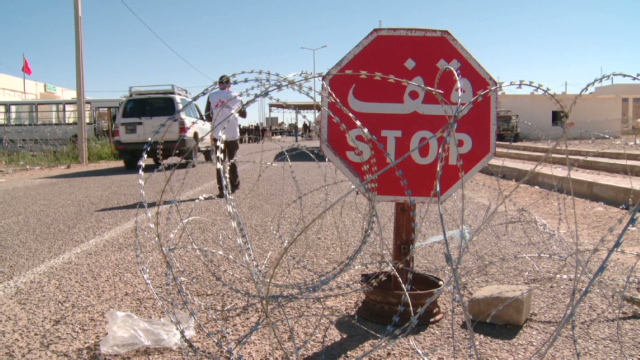
Fierce fighting intensified in the Libyan capital, Tripoli, leading to the death of more than 254 people and the injury of 1,228 others, but the cost of these battles may trespass Libya borders, causing serious consequences for neighbouring Tunisia, like reported by middleeastmonitor.com.
Tunisia, which shares a 500 kilometre border with Libya, is wary of the consequences of a second-week of fighting after the retired General Khalifa Haftar launched a military operation on 4 April to take control of the city.
Although Haftar has so far failed to make progress on the ground, the long fighting increased Tunisia’s fears, which announced a few days ago that 24 European militants, including 13 French citizens, had crossed the border from Libya.
According to observers, fears have been evident since the first moments of Haftar’s operation in Tripoli. The Tunisian Ministry of Defence announced that it would anticipate any emergency and would take all precautions to secure the south-eastern border and face potential repercussions in anticipation of possible developments.
While the Tunisian Foreign Ministry called for the immediate cessation of fighting in Tripoli. It also renewed its call to the parties to the conflict to seek a peaceful and consensual solution, describing the military escalation witnessed by Libya as “dangerous”.
In turn, the Tunisian presidency called for the need to avoid military escalation in Libya and end the infighting.
The Ministry of the Interior increased its readiness, and warned of the risk of the infiltration of terrorist militants across the eastern border, because of the security situation in Libya.
A climate conducive to terrorism
Tariq Al-Kahlawi, former Director of the Tunisian Institute for Strategic Studies, said: “The instability in the western region in Libya could deepen the chaos and weaken the power of the forces that support the Government of National Accord, which could lead to the return of the concentration of ISIS [Daesh] on the Tunisian border.”
In an interview with the Turkish agency Anadolu, Al-Kahlawi pointed out that “what is happening in Libya would create a favourable atmosphere for the activity of terrorists, and investment in chaos.”
He added that “the state of chaos will make the task of the Tunisian side to find a party in Libya to coordinate with more difficult, as the Libyan parties are engaged in internal conflict.”
“The situation in Libya may exhaust the ability of the [Tunisian] army and security forces to secure the border. Nevertheless, these forces remain on high alert,” Al-Kahlawi continued.
As for the repercussions of the situation in Libya on the economy of Tunisia, Al-Kahlawi said that this influence “will not be limited to Tunisia, as Libya is an oil country and the conflict there may affect the rise in fuel prices and the oil market, although the current policy of the Organisation of Petroleum Exporting Countries (OPEC) is based on not increasing production to maintain prices.”


